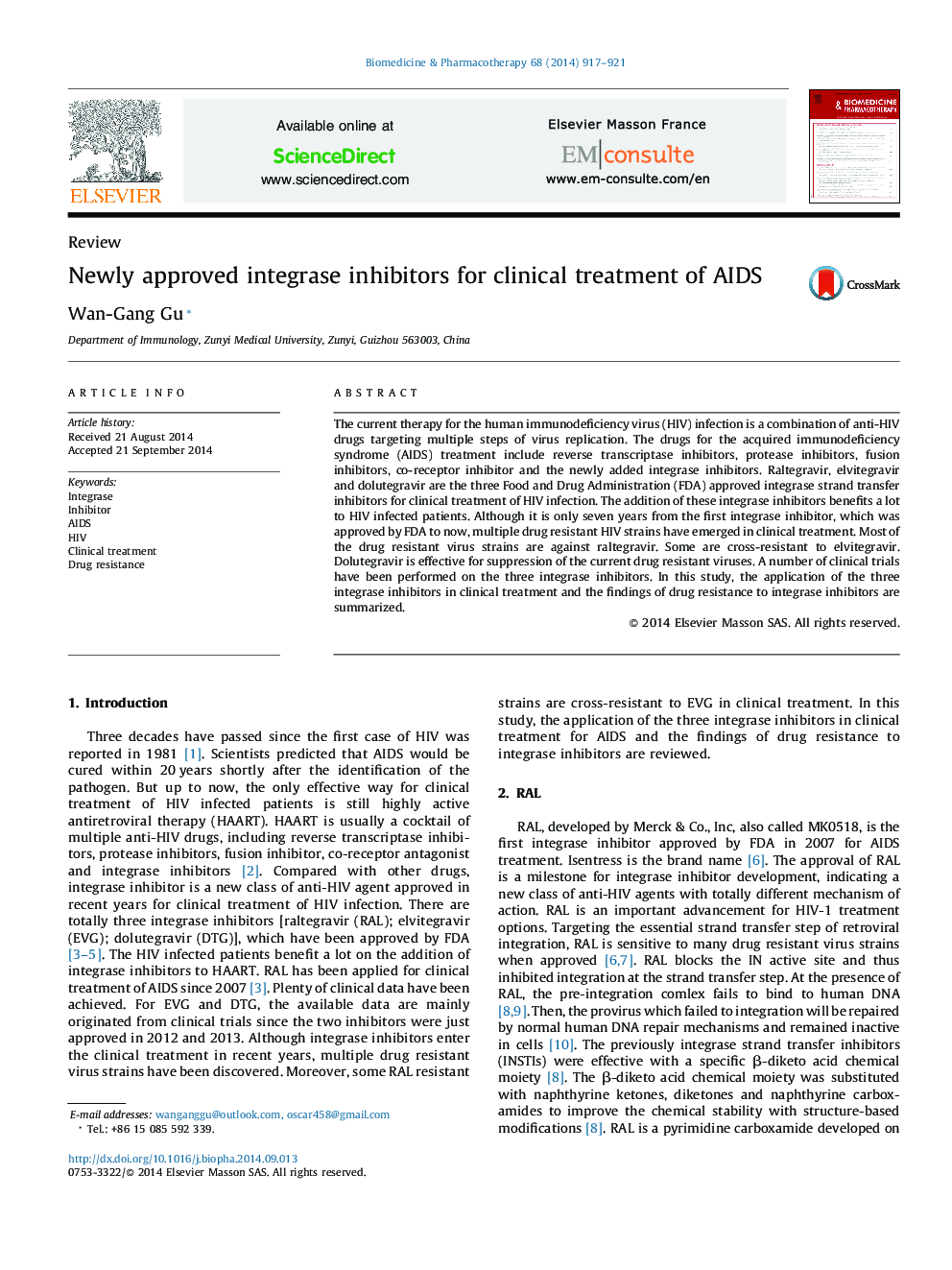| Article ID | Journal | Published Year | Pages | File Type |
|---|---|---|---|---|
| 2524249 | Biomedicine & Pharmacotherapy | 2014 | 5 Pages |
The current therapy for the human immunodeficiency virus (HIV) infection is a combination of anti-HIV drugs targeting multiple steps of virus replication. The drugs for the acquired immunodeficiency syndrome (AIDS) treatment include reverse transcriptase inhibitors, protease inhibitors, fusion inhibitors, co-receptor inhibitor and the newly added integrase inhibitors. Raltegravir, elvitegravir and dolutegravir are the three Food and Drug Administration (FDA) approved integrase strand transfer inhibitors for clinical treatment of HIV infection. The addition of these integrase inhibitors benefits a lot to HIV infected patients. Although it is only seven years from the first integrase inhibitor, which was approved by FDA to now, multiple drug resistant HIV strains have emerged in clinical treatment. Most of the drug resistant virus strains are against raltegravir. Some are cross-resistant to elvitegravir. Dolutegravir is effective for suppression of the current drug resistant viruses. A number of clinical trials have been performed on the three integrase inhibitors. In this study, the application of the three integrase inhibitors in clinical treatment and the findings of drug resistance to integrase inhibitors are summarized.
